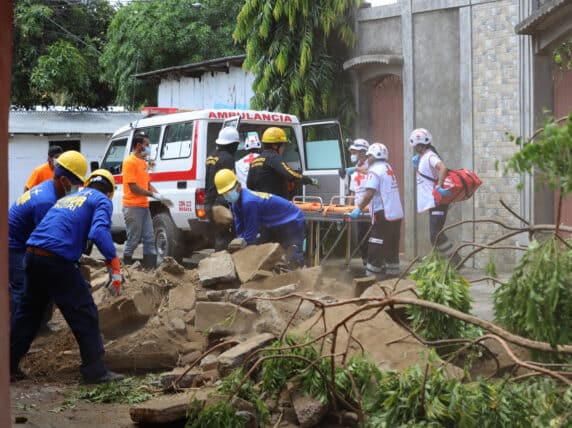Listen to children and young people in policy making
Unicef estimates that around 250 million is for children live in countries and areas affected by armed conflict.
These crises stem from conflicts they did not create. Conflicts in which they have no say. Conflicts which are destroying their childhoods.
Article 12 of the UN Convention on the Rights of the Child (UNCRC) recognises children and young people’s right to participate in policy decisions that affect them. This is underpinned by the youth engagement strand of the Sustainable Development Goals.
However, the voices of children and young people are still largely absent in humanitarian and development policy discussions. Their views are routinely ignored and are rarely considered by decision-makers.
So how can INGOs help children and young people realise their Article 12 rights on humanitarian issues? How can INGOs be the bridge between children and young people and key decision-makers to ensure their voices are heard, particularly within these humanitarian contexts?
These are questions we took to our recent seminar. We invited 20 participants from INGOs such as Child to Child, Lumos, War Child, Unicef, as well as academics.
Kay Tisdall, Professor of Childhood Policy, University of Edinburgh argued that children and young people should have the opportunity to identify and frame the issues that are important to them, regardless of the policy area. She stated that these issues should become part of policy development.
Children and young people should not only participate in discussing problems, but also in discussing solutions. Sadly, these are not the usual conventions of policy-making used by adults, let alone children and young people. The common approach among decision-makers is to consult after setting the agenda. Whereas, children and young people should be recognised as key stakeholders, who have a “place at the table” in policy-making discussion.
Professor Tisdall highlighted good practice in the UK of involving children and young people in policy-making Young Edinburgh Action, Everyday Heroes programme and Children’s Parliament . The INGOs attending our seminar highlighted projects such as the World Vision research project: Their Fight, our Future, War Child’s Voice More project and Lumos’s youth self-advocates project.
Key recommendations from the seminar
UK-based INGOs need to keep creating opportunities for children and young people to meet decision-makers and influencers to discuss their issues. The challenge lies in supporting them to to vocalise their issues clearly when meeting policy-makers, and to normalise children giving evidence, for example to governmental committees.
World Vision Youth Advocates discussed whether young people in the UK could connect with children and young people overseas and then share their experiences overseas with policy makers on their behalf. The idea is that the young person in the UK can be the point of contact between policy makers and those who can’t travel to represent themselves.
Subscribe to our newsletter
Our weekly email newsletter, Network News, is an indispensable weekly digest of the latest updates on funding, jobs, resources, news and learning opportunities in the international development sector.
Get Network NewsAt community programming level, we should support cultural and value shifts by promoting capacity building. We need to put value on children’s involvement in decision-making and promote participation as the responsibility of everyone, including parents, caregivers, government officials, religious leaders and the local community.
We need to do more to explore how best to facilitate children’s participation in conflict affected areas. We must make sure not to exclude children and young people from policy-making discussions because of protection and security fears. If mitigation and support measures are robust and well-considered enough, then children and young people have proven they are capable of stepping up to the challenge of running their own projects and speaking for themselves on the important issues impacting their lives, regardless of circumstance.
We want to include the Foreign Office (FCO) and the Department for International Development (DfID) in our discussion. INGOs need to work with them, not just tell them what to do. It will help if DfID and FCO have the staff to champion the voice of children, and to make sure they’re taken into account in policy work.
We want to develop this joint approach using existing tools such as child-led research . This is a participatory approach where children conduct pieces of research by selecting the topic, designing the tools, collecting and analysing data and providing recommendations.
We will be asking DfID and FCO for a meeting so we can present the findings of our seminar. We will be proposing the creation of children’s participation champions within DfID and FCO to aid in embedding participation of young people in policy-making. This can help us to ensure that the working with DfID and FCO is a continual process and not just a one-off.
Help put children and their rights on the forefront of the UK’s international development and foreign policy and practice. Join our Childs Rights working group.
Category
News & ViewsThemes
Futures and innovation



